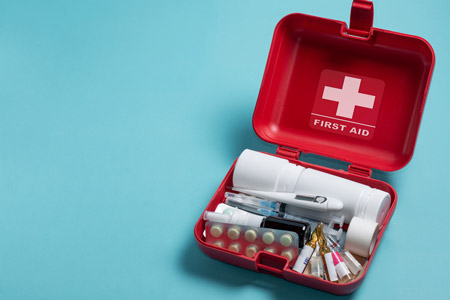


The Importance of Oral Hygiene for Overall Health
Taking care of your mouth is about more than just having a nice smile. Good oral hygiene helps keep your whole body healthy.
Brushing, flossing, and regular dental visits do more than protect your teeth — they also protect your heart, lungs, and even your brain. Let’s explore why oral hygiene is so important to your overall health.
Why Oral Hygiene Matters
Your mouth is full of bacteria. Most of them are harmless, but some can cause infections if there’s an overgrowth of that particular kind. Brushing and flossing remove food and plaque, which is a sticky film of bacteria. If plaque builds up, it can cause cavities (holes in your teeth) and gum disease.
Gum disease, also called periodontal disease, is a serious infection of the gums. If left untreated, it can damage the bone that supports your teeth and lead to tooth loss. But it can also lead to problems outside the mouth.
Oral Health and the Rest of Your Body
Researchers have found strong links between gum disease and other health issues. These include:
- Heart Disease: Bacteria from the mouth can enter the bloodstream and cause inflammation in the heart and blood vessels.
- Diabetes: People with gum disease may find it harder to control their blood sugar.
- Pregnancy Issues: Poor oral health may be linked to early births or low birth weight.
Healthy Habits for Good Oral Hygiene
- Brush your teeth twice a day with fluoride toothpaste.
- Floss once a day to remove food between teeth.
- Visit your dentist every 6 months for a checkup and cleaning.
- Avoid sugary snacks and drinks that can lead to cavities.
- Drink plenty of water to help wash away food and bacteria.
Your mouth is the gateway to your body. Keeping it clean helps protect you from many health problems. It’s never too late to improve your oral hygiene. Start today, and take care of your smile — and your whole body — for years to come.
The information on this site is for informational purposes only and should not replace direct medical advice, diagnosis, or treatment from your doctor or another qualified healthcare provider.
Sources:
”Gum Disease and Other Diseases.” American Academy of Periodontology.
“Pregnancy and Oral Health.” The Centers for Disease Control.
“When and how often should you brush your teeth?” Mayo Clinic.



.jpg)
.jpg)
.jpg)


















.jpg)





















.jpg)

















.jpg)


























.jpg)
.jpg)
.jpg)








